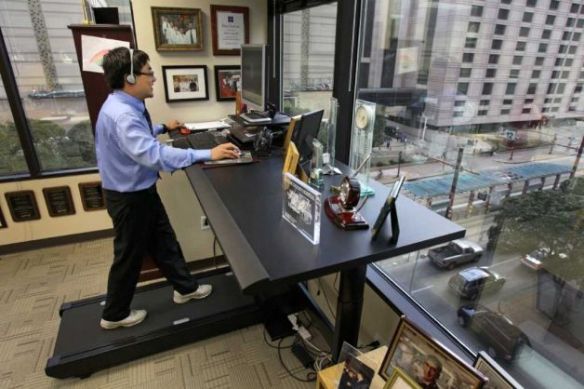I sat at the table this week with our new interns and the outgoing chief residents. Listening to our new interns as they asked questions, I realized everyone starting their internship has the same fears, whether or not they express them: Will I kill or hurt someone? Will I look stupid? What if they find out I’m not as smart as everyone else? Will I get divorced/separated/alienated from my friends? Will I gain weight? How am I going to find time to take care of myself?
What you are feeling is normal. Every doctor who ever started an internship felt exactly the same way. The best way to manage your (healthy) fear is to have a strategy. I’ve written in the past about how to succeed as an intern. But if I were going to condense that advice into three easy rules (for every day except your day off) it would be these:
1. Read at least one section from a textbook in your field every day
2. Learn something (in detail) from at least one patient every day
3. Do something to take care of yourself every day
Read at least one section from a textbook in your field every day.
Your goal for the year should be to read a major textbook in your field cover to cover. You don’t have to buy the physical book. It’s fine if it’s on line or downloaded onto your iPad.
Once you have the book, make a list or spreadsheet of all the sections in all the chapters. For most textbooks, it’s probably going to be a list somewhere between 150 and 200 topics. When you look at the 48-50 weeks you will be working this year, it works out to basically a topic a day (with some days for review).
The real goal is not just to read these topics, but to really learn them. So, when you read, don’t just skim. Read to learn. That means taking notes – and reviewing them.
Put a chart on the wall with the list and give yourself a gold star when you finish a topic if you have to, but find a way to make sure you cover all the topics (at a steady pace) during the year.
Learn something (in detail) from at least one patient every day.
It’s really easy, as an intern, to get caught up in the work and forget that you are fundamentally here to learn – not to provide service. Make it a daily habit to learn in detail about one patient in your care. It will overlap nicely with your goal to read a complete textbook. When you admit a patient with pneumonia, read the section (and make notes) on pneumonia and then check it off your list.
One other important point (that none of us like to hear) – You will make mistakes. Be humble, be honest, and learn from your mistakes. The mistakes you make (and maybe more importantly your “near misses”) are absolutely your most valuable teacher. When you do make a mistake, use it as the topic you will review for the day. You are going to be really upset but be easy on yourself. Being upset is the mark of someone who cares, but don’t let it escalate beyond a healthy response. Talk to your mentors and senior residents. They’ve been there.
Do at least one thing to take care of yourself every day.
This may sound trivial, but it’s not. If you can, try to eat well, get some exercise and be social every day. At a minimum, though, pick one specific thing you are going to do for yourself and then do it.
Eat well
- Eat a good breakfast
- Pack the food you need for call
- Cook for yourself
- Eat fruits and/or vegetables with every meal
- Make a salad to take for lunch
- Use caffeine wisely
- Make a healthy sandwich for lunch
Get Some Exercise
- Go for a run
- Find a new, fun way to exercise
- Do a little exercise even if you are on call
- Try a spin class
- Find a way to fit exercise into your busy schedule
- Take the stairs
- Ride your bike to work
Be social




















